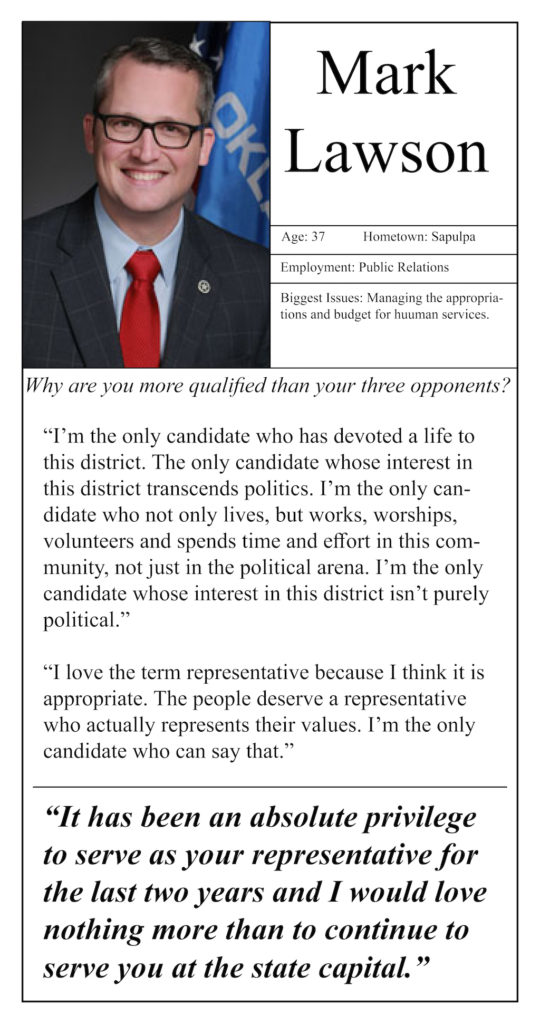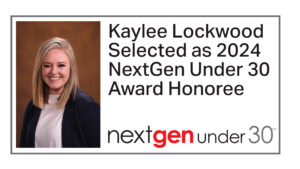KT: When you first ran for office two years ago. What did you hope to accomplish?
ML: The main reason I got involved two years ago was the budgetary problems facing the state, but also I wanted to address some policy. What I saw here in the district was the break down of the family unit, a lot of single parent households. I’m not saying that it’s a bad thing, but it is prevalent. And with a single income there are a lot of secondary and tertiary issues face those families when it comes to providing for the needs of those kids. I wanted to address those issues at the state level.
KT: How do you think you’re doing at accomplishing those goals?
 ML: I feel we are making great strides. The first year in office I was appointed as the vice chairman of the children, youth and family services committee, which is the working policy committee, pretty self-explanatory, dealing with children, youth and family services.
ML: I feel we are making great strides. The first year in office I was appointed as the vice chairman of the children, youth and family services committee, which is the working policy committee, pretty self-explanatory, dealing with children, youth and family services.
This past year I elected to, and was granted the request to, switch to become the vice chairman of the appropriations and budget subcommittee on human services. That is the committee in the House that deals with the budget side of agencies. DHS is the main agency that falls under their purview. As far as the appropriated budget goes, DHS is roughly one-third of that budget, and human services deals with a lot of the programs that address issues with the family, whether that’s child welfare, parenting classes or the Pinnacle Plan.
I felt like my background and my experience outside of the legislature aligned best serving on that committee. So much of the policy that would come out of the children, youth and family services committee is going to be dependent on funding to carry out those programs, or funding to these agencies that are supposed to oversee any policy changes that we make.
I feel we are making great strides. One of the best things we have done is this budget that we passed this past year. It is the first no-cut budget in the state since 2013. We were also able to provide a rate increase to medicaid providers. Most of the medicaid recipients in Oklahoma are children, so this is the health care that they need. It is hard for a child to have good educational outcomes if they are sick all the time. Increasing those provider rates insures that we’ll have more providers in the state.
I feel overall we are making great progress as a state, but definitely in the children, youth, and family services arena.
KT: You mentioned your background outside of the legislature explains how you were fit for these positions, can you tell me a little bit more about your work history?
ML: Sure, I worked at the children’s hospital at Saint Francis in pediatrics for seven years. I worked as a nurse tech, which is like a CNA outside of the Saint Francis system. That was when I was going back to school, getting my health education and pre-med degrees. Also during that time I worked in the Safe Place program with Youth Services of Tulsa. I did that part-time.
Since then, when I got out of healthcare in 2013, and started working at American Heritage Bank here in town (Sapulpa), I started spending a lot of my free time, that I was otherwise not spending in school, volunteering. I served on the Board of Directors for Youth Services of Creek County and as a volunteer for Creek County CASA (Court Appointed Special Advocate). Are you familiar with that program at all?
KT: No, I’m not.
ML: OK, so what the CASA program is, when the state becomes involved in a family matter — that can be domestic violence, some sort of physical abuse or substance abuse in the home, or just general neglect — the state adjudicates or takes custody of that kid. The kid can’t go home with mom and dad, and is often placed in foster care or temporary placement until mom and dad can satisfy the court that they have corrected whatever problem they were having. The court often focuses on the parents, and the kid often is left out in limbo. The CASA program is designed to train these volunteers who are essentially the voice for the child during these court proceedings, to make sure before the state sends the kid home that the environment is fit for suitable living. It’s not some rigorous set of standards, but basic human needs. The advocate is there to make sure the needs of the child are being met.
That’s really my background. Personally, I’ve mentored some teenagers over the years, but that’s in no professional setting.
KT: What accomplishments in office, or bills that you’ve written in the past two years are you most proud of?
ML: I would say that the audit bill, HB 2311 during the 2017 legislative session, was probably the biggest piece of legislation that we passed. And teacher pay, I’m proud of that as well. But I think what the audit bill brings is a transparency of government that people of the district and tax payers in general of Oklahoma have been demanding of their government.
For several years and even in to this year, there are folks that have campaigned on and advocated in the legislature for this, but nothing had ever moved forward with it. We were able to pass that out my first year. It was actually Senator Leewright who was the primary author on that, but I was happy to assist him in getting that language together and moving that legislation forward. I think those audits are going to really let us glean deeper insight into the state budgetary process and how tax dollars are being sent.
Personally I’m proud of legislation that I’ve passed. I can’t tell you the number, but this year we passed a bill that allowed for the state to differ adjudication for juveniles. Adults would be charged with a misdemeanor or felony. In juvenile court it’s called adjudication. If a child or a juvenile is satisfying the requirements of the court on a program to show they are not on drugs or are not violent or whatever it may be, they can further delay that adjudication. What that does, is it keeps kids out of the penal and judicial system. I think it goes hand-in-hand with a lot of the criminal justice reform that we’ve been working on in the last several years.
I think that if kids are stuck with a criminal record at an early age it definitely hinders them from gainful employment. It sets them back. Anything we can do for the children showing marked improvement to keep them out of the system is a step in the right direction. Don’t we all want someone to be in the workforce rather than behind bars?
Those are two of the big ones, and of course the teacher pay raise that was long overdue. The public really wanted us to address that issue, and we were able to get it done this past year.
KT: I noticed in background research that you already have a leadership position in your second year in office, as Assistant Majority Whip. How did you get a leadership position so quickly?
ML: Well, we do have a super majority of the Republican Party in the House of Representatives. The position of assistant majority whip is appointed by the Speaker of the House for internal communications among the Republican Caucus. When certain bills are being considered it is the whips’ responsibility to communicate with our teams. I had a team of eight representatives, communicating and disseminating information to them and reporting that back to the Speaker’s office. When we have 72 members, divide and conquer is kind of the strategy.
I was happy to lead a team of fellow freshmen, and that was appointed by the Speaker of the House.
KT: Should you be reelected, what are your plans for the 2019 session?
ML: For 2019, my plan is to be appointed Chairman of the Appropriations and Budget Subcommittee on Human Services, which I have every reason to believe will happen. My biggest priority would be to immediately, on June 27, begin digging in to that role.
Legislatively, as far as bills that I want to consider, I’m willing to set that aside to address the budgetary process of one-third of the appropriated budget of the House of Representatives and just learning that process to make sure that we are being as efficient and lean as possible without cutting necessary programs to our most vulnerable citizens. That is a large undertaking and I’m ready to get started on that June 27.
KT: So, what make you more qualified than your three other primary opponents?
ML: That’s a great question. Of course we all live in the district, that’s what qualifies us to be eligible to run, but I’m the only candidate who has devoted a life to this district. The only candidate whose interest in this district transcends politics. I’m the only candidate who not only lives, but works, worships, volunteers and spends time and effort in this community, not just in the political arena. I’m the only candidate whose interest in this district isn’t purely political.
Being born and raised here, and spending my time and efforts, whether it’s through these services on these boards or just being an engaged citizen in the district, says a lot about who best knows the values of the district. I love the term representative because I think it is appropriate. The people deserve a representative who actually represents their values. I’m the only candidate who can say that.
KT: While looking at your campaign finance reports, I noticed for this year that you’ve received $30,000. That is on par with some of the Governor candidates. How do you respond to the criticism that this is a pay-to-play system and that you have to have a large amount of money to be elected, or to even run for office?
ML: I would have to go and look at those reports, but a lot of that $30,000 was carry over from the last campaign cycle. A lot of my contributions were from individuals, most of whom live in the district and that I have personal relationships with. I think it does require money to run an effective campaign, only because you are trying to reach 37 to 38,000 people, which is the makeup of each district. But I don’t think that it is really a pay-to-play system.
I think if you have not spent a lot of time invested in your district until you decide to run for office, you may have a very,very hard time getting elected without a lot of money, but I feel like if a candidate is running and has a positive reputation in that district prior to running, it doesn’t take near as much money to run a successful campaign.
A campaign’s finance is up to the candidate, how much money he or she is willing to spend or wants to spend. We are unrestricted on how much of our own finances we put in to our own campaign, but we are required to disclose how much of our own money we are spending.
I can see the argument that people say it’s a pay-to-play system, but I just don’t see that it’s true if there is a legitimate candidate. And again, most of my contributions have come from individuals with whom I have a personal relationship. If they feel that those are resources they want to give to me and to my campaign to get elected, I feel like that is done above board and the way it should be done.
KT: You’ve also been in the news recently. I saw in the Tulsa World last week that there is a coalition that are trying to create a special session to overturn Governor Fallin’s recent vetoes and that you are part of that. Which vetoes do you want to overturn and why?
ML: I, specifically, am only about SB 1212, which is constitutional carry. With any other vetoes apart from that I want to be clear that I’m not saying yes and I’m not saying no. There are a lot of vetoes that happened over the last eight years, and I would have to vet each one of those individually.
The only one that I’m aware of that is being considered is SB 1212. I do feel like people’s right to keep and bear arms is absolute. Any citizen who is not a felon should be able to carry a firearm if they so choose. It is a right, and it is the only right that requires you to pay a fee to use it. There are some citizens outside of Oklahoma, that because of the reciprocity law, Arizona for example, where they have constitutional carry. A citizen of Arizona can carry a firearm without a license in the state of Oklahoma and they have more rights than do Oklahoma citizens because of that reciprocity law.
No one has specifically mentioned any other veto at this point that I’m aware of. There are several over the last eight years, and any other veto that would be considered in addition to SB 1212 I would have to vet myself before taking a stance on it.
KT: You voted for the Step Up Oklahoma teacher pay plan, and as you already mentioned you were happy that it passed. Can you tell me why you voted for it and what your rationale behind that vote, because it was controversial even when it did what people wanted it to do?
ML: Absolutely. Two years ago during my first campaign I was in a very similar situation in that I was in a Republican-only race. So I spent my time on Republican doorsteps talking to Republican voters here in the district. The overwhelming priorities of the Republican voters here at home were, “fix the budget,” and, “give teachers a raise.” Fast forward through the 2017 session and through the special sessions to when the Step Up plan came about. I had the opportunity to revisit with a lot of constituents bak here at home, filling them in on the progress of what we were doing legislatively to address this issues.
Secondarily, it needs to be noted that after we passed the budget in the first special session, the governor vetoed that budget and called us in to a second special session. In that call, which is her purview to do as the Governor in a special session, she sets the legislative agenda, contrary to a regular session where the legislature sets the agenda and passes whatever bills it chooses.
She called revenue and she called for a teacher raise. These were in line with Republican voters two years ago. Through visiting with them, saying in order to give teachers this raise it would require a vote to increase taxes, and the overwhelming feedback that I got from these Republican voters was essentially, “Mark, nobody likes taxes any more than the next person, but we need to give our teachers a raise, we need to fix the budget. If you have to raise our taxes just make sure you’re raising taxes on big oil and big gas too.”
With that being said, the gross production tax increase, which was the lion’s share of this revenue comes from, was raising the rate from 2 percent for the first 36 months to 5 percent for the first 36 months on horizontal wells. I view that as clawing back an incentive, which is also something that Republicans are interested in, eliminating corporate welfare.
To put that into perspective, everybody who produces oil here in Creek County is a small producer operating vertical wells, which dig a hole straight down and pump oil straight out of the ground. Vertical well owners are paying 7 percent gross production tax on every barrel of oil that they pump out of the ground. Outside of Creek County, your Chesapeakes, your Haliburtons, your Continentals, your Devons, they are getting that incentive of paying 2 percent for every barrel or the first 36 months of production. The difference is, with their wells they drill down and then do what’s called horizontal drilling, which yields a much higher production, and the well depletes more quickly, so most of that production happens within the first 36 months.
Some say that is raising a tax, but everyone that produces oil here in Creek County is already paying 7 percent. I view that as the clawing back of an incentive. Eliminating that corporate welfare for the betterment of our state budget, and of course, most of that went toward the teacher pay raise.
I was never a fan of the cigarette tax. I feel like it was a diminishing revenue source. If, in fact, raising that price per pack of cigarettes does deter smokers, what’s to happen if in theory that comes to fruition and people stop buying cigarettes. Then where does the state find that revenue?
The fuel tax was very competitive. I believe we went from 50th in the nation to maybe 48th, and that is a consumption tax. There are ways that people can avoid paying that tax should they want to.
In the end, what we passed in the revenue, and this is where I think conservative voters can be very happy with what we were able to do, to the average non-smoking Oklahoman, what we passed is only going to cost them $17 a year in motor fuel. And if they are a smoker, we have the TSET monies available that are there to help people quit smoking. There are several cessation methods available at no cost to Oklahoman’s should they not want to incur that tax.
I felt that it was in line with what the voters here in District 30 wanted. It helped us to, again, have the first no-cut budget since 2013 and give our teachers the first pay raise in 11 years.
Those were the priorities of the voters here at home, and ultimately that’s my job, to be their voice at the capital.
KT: Is there anything else that you think voters should know that we haven’t addressed?
ML: It has been an absolute privilege to serve as your representative for the last two years and I would love nothing more than to continue to serve you at the state capital. I would appreciate your vote on June 26.








